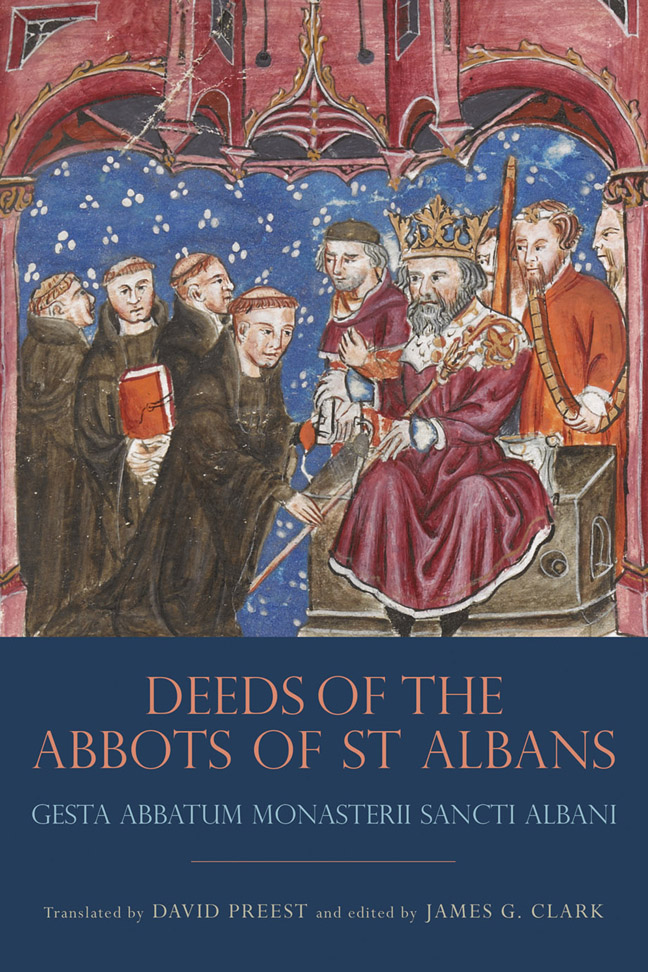Book contents
- Frontmatter
- Contents
- List of Illustrations
- Acknowledgements
- List of Abbreviations
- Introduction
- The Translation and its Sources
- The Deeds of the Abbots of St Albans
- Appendix A Thirteenth-Century Précis of the Deeds of the Abbots of St Albans: British Library, MS Cotton Vitellius a XX
- Bibliography
- Index
3 - Wulsig
Published online by Cambridge University Press: 17 February 2024
- Frontmatter
- Contents
- List of Illustrations
- Acknowledgements
- List of Abbreviations
- Introduction
- The Translation and its Sources
- The Deeds of the Abbots of St Albans
- Appendix A Thirteenth-Century Précis of the Deeds of the Abbots of St Albans: British Library, MS Cotton Vitellius a XX
- Bibliography
- Index
Summary
Wulsig the third abbot. This one was the worst
Eadric was succeeded as abbot by Wulsig, without any long time interval, just as the illustrious King Offa had required. Wulsig was descended from a line of kings, and soon he was puffed up with pride, changing his habit in shape and colour. He paraded about clad in garments of silk and wearing ornaments. He went hunting. He was a gluttonous eater and drinker, and made it his aim to win the favour of powerful princes rather than the favour of God. He frequently went beyond the bounds of propriety and caused a scandal by inviting crowds of nobly born women to penetrate the defences of his dwelling and to dine at his table. Although perhaps nothing sinful actually occurred, he did tremendous damage to his own reputation for integrity and to that of the monks. The sweet fragrance of the good report of their religious life at the beginning of Wulsig’s abbacy died away. The little flame of their charity cooled to ashes. The devotions of many grew lukewarm.
So, relying upon the secular arm and the protection of the rich, Wulsig looked after himself and his own with a strong hand. But he wasted the substance of the church and despoiled her treasury. He sold the precious vessels which had been the gift of King Offa, the vestments and the necklaces, whose loss was irreparable. His husbandless cousins, both widows and maids, and even more distant relations were joined in marriage to magnates, each with a handsome dowry. And so he was justly struck down by the avenging arm of God and the martyr, for he roused his own convent to rebel against him. And shortly afterwards, amid the enmity and curses of the convent, he departed his worldly dwelling; poisoned.
After his death, in defence of the convent men of some weight and power rose up against all those relations whom that fleshly abbot had fattened with the wealth of the church. They disputed and questioned their titles to this wealth and despoiled all of them of the goods which they had obtained from the church. Those who had had this wealth snatched from them dragged out a miserable existence in poverty and weakness, and ended their lives as beggars.
- Type
- Chapter
- Information
- The Deeds of the Abbots of St Albans<i>Gesta Abbatum Monasterii Sancti Albani</i>, pp. 55 - 58Publisher: Boydell & BrewerPrint publication year: 2019

